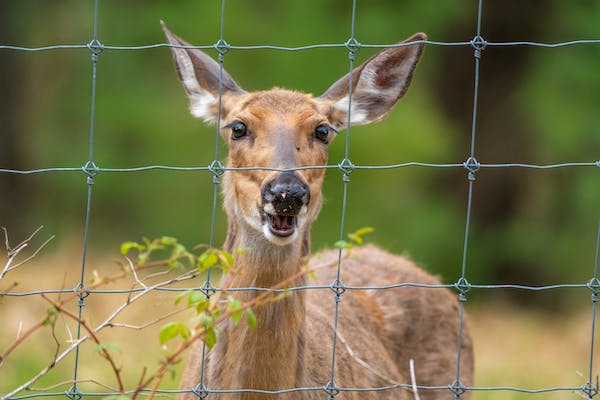
Deer hunting season and its significance in rural development
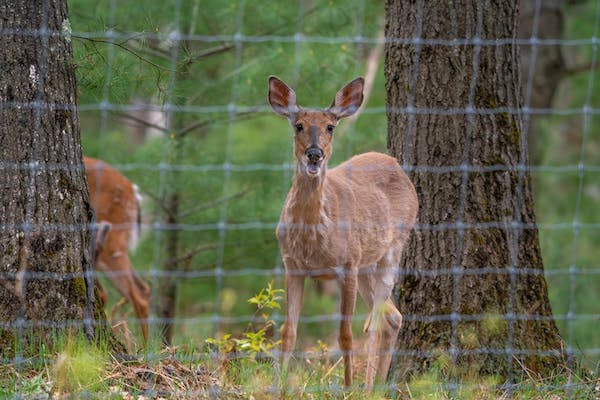
Characteristics of the Deer Hunting Season
The Economic Impact of Deer Hunting Season: Boosting the Country’s Bottom Line Deer hunting season is one of the most anticipated times of the year in many parts of the country. Beyond the thrill of the hunt, this season brings with it a significant economic impact. The dee hunting industry generates billions of dollars, contributing to the country’s bottom line. The economic impact of dee hunting season is felt across the entire supply chain: from the manufacturers of hunting equipment and gear, to the hospitality industry, local businesses, and the government.
In this article, we explore the economic impact of deer hunting season and how it affects different sectors of the economy. We will also discuss the benefits of hunting for both local communities and the environment. So, whether you are a seasoned hunter or simply interested in the economics of hunting, read on to discover how dee hunting season can boost the country’s economy.
Deer hunting season is an annual event that holds significant economic implications for the country. Spanning several weeks, this highly anticipated season not only attracts hunters from all walks of life but also plays a crucial role in boosting the nation’s bottom line. Deer hunting, deeply rooted in tradition and heritage, has evolved into a multi-billion dollar industry that stimulates local economies and supports various sectors. From small rural towns to larger cities, the economic impact of dee hunting season can be felt across the nation.
Firstly, the sale of hunting licenses and permits generates substantial revenue for state wildlife agencies. These funds are vital for wildlife conservation efforts, habitat management, and species preservation. Additionally, they contribute to research and educational programs aimed at promoting sustainable hunting practices.
Moreover, the economic benefits extend beyond licensing fees. Local businesses and retailers experience a surge in activity during hunting season. Hunting enthusiasts equip themselves with firearms, ammunition, hunting gear, and accessories, creating a significant boost in sales for sporting goods stores, hunting supply shops, and outdoor retailers.
Accommodation providers, such as hotels, lodges, and cabins, also witness a spike in bookings as hunters from both near and far seek comfortable and convenient places to stay during their hunting expeditions. Restaurants, cafes, and grocery stores benefit from the increased foot traffic, catering to the needs of both hunters and their families.
Furthermore, the processing and taxidermy industry experiences a boom during deer hunting season. Local butcher shops and meat processors are in high demand as hunters bring their harvested deer for processing, transforming them into various cuts of meat and sausages. Taxidermists, skilled in preserving and mounting animal trophies, also thrive during this season, offering their services to hunters who wish to commemorate their successful hunts.
Lastly, tourism receives a significant boost during deer hunting season. Hunting destinations become popular attractions, attracting visitors from other states and even foreign countries. Hunting outfitters and guides provide valuable services, ensuring visitors have a successful and enjoyable hunting experience. Deer hunting season goes beyond the thrill of the hunt. Its economic impact resonates throughout the country, stimulating local economies, supporting businesses, and contributing to wildlife conservation efforts. As we delve further into the various aspects of this season, we will uncover the multitude of ways in which dee hunting positively influences the nation’s economic landscape.
The economic impact of deer hunting on local communities
Deer hunting season not only brings excitement to hunters but also has a significant economic impact on local communities. As hunters flock to the woods and fields in pursuit of deer, they contribute to the growth and prosperity of the surrounding areas in various ways. First and foremost, dee hunting generates revenue through license fees. Hunters are required to obtain licenses, which in turn provides funding for wildlife management programs and conservation efforts. These funds are essential for maintaining healthy deer populations and preserving habitat for future hunting seasons.
Additionally, the influx of hunters stimulates local businesses and boosts the economy. From sporting goods stores to hotels, restaurants to gas stations, the demand for goods and services increases during hunting season. Hunters purchase hunting gear, ammunition, and supplies, supporting local retailers. They also book accommodations and dine out, providing a welcome boost to the hospitality industry. The increased economic activity translates into job opportunities and income for residents, driving growth and prosperity in the community.
Furthermore, dee hunting season often attracts tourists from outside the local area. Hunters may travel long distances to participate in specific hunting opportunities, leading to spending on lodging, dining, and other recreational activities. This influx of non-local visitors injects additional revenue into the community, benefiting not only businesses directly related to hunting but also the broader local economy.
Beyond the immediate economic impact, dee hunting can also have indirect benefits for local communities. Landowners who allow hunting on their properties often receive lease payments or enter into agreements with hunting outfitters. These arrangements provide supplemental income and can help support agricultural operations or land management activities. Moreover, dee hunting can aid in controlling deer populations, minimizing crop damage, and reducing the risk of vehicle collisions, all of which can have long-term economic benefits for farmers, drivers, and insurance companies.
The economic impact of dee hunting season on local communities is substantial. Through license fees, increased business activity, tourism, and indirect benefits to landowners and farmers, dee hunting contributes to the growth and prosperity of the country’s bottom line. It is a reminder that the conservation and management of wildlife can go hand in hand with economic development, creating a win-win situation for both nature enthusiasts and local communities.
Job creation and income generation through deer hunting season
Deer hunting season not only provides a thrilling experience for outdoor enthusiasts but also plays a significant role in job creation and income generation. As hunters gear up with their rifles and hunting gear, various sectors of the economy come to life, creating opportunities and bolstering the country’s bottom line.
One of the primary ways deer hunting season contributes to job creation is through the hunting industry itself. From hunting outfitters and guides to gear manufacturers and retailers, a wide range of businesses thrive during this time. Hunting outfitters and guides, in particular, play a vital role in ensuring a successful and enjoyable hunting experience for both novice and seasoned hunters. These professionals provide guidance, expertise, and knowledge of the hunting grounds, creating employment opportunities in rural areas where hunting is prevalent.
The economic impact of deer hunting season extends beyond the hunting industry. Local businesses, such as hotels, restaurants, and gas stations, experience increased patronage as hunters travel from far and wide to participate in this beloved tradition. These establishments often see a surge in occupancy rates, restaurant reservations, and fuel sales, leading to additional job opportunities for locals in these sectors.
Moreover, the income generated during deer hunting season ripples through the economy, benefiting not only hunters but also the communities they engage with. Hunters typically spend money on accommodations, meals, hunting licenses, ammunition, and other necessary supplies, injecting revenue into the local economy. This influx of spending stimulates local businesses, allowing them to expand their operations, hire more employees, and contribute to the overall prosperity of the region.
In addition to direct economic benefits, dee hunting season indirectly supports related industries. For instance, meat processing facilities experience a surge in demand as hunters bring their harvested deer for processing and packaging. This creates employment opportunities in the food processing sector and allows hunters to enjoy the fruits of their labor by having their venison professionally prepared.
Overall, the economic impact of dee hunting season is significant, with job creation and income generation permeating various sectors of the economy. Whether it’s the hunting industry itself, local businesses, or associated industries, the economic benefits of deer hunting season serve as a boost to the country’s bottom line, contributing to economic growth, employment opportunities, and the well-being of communities across the nation.

Revenue from licenses and permits for hunting
One significant source of revenue during deer hunting season is the sale of licenses and permits. These fees not only contribute to the conservation efforts but also have a substantial impact on the country’s economy. Hunters are required to obtain licenses and permits to legally participate in hunting activities, and the revenue generated from these sales is allocated towards wildlife management, habitat preservation, and conservation initiatives.
The sale of licenses and permits not only benefits individual states but also the overall economy. As hunting attracts a large number of enthusiasts, the revenue generated from these sales has a ripple effect on various sectors. From sporting goods stores that sell hunting equipment and gear to local businesses that provide lodging, food, and other services to hunters, the economic boost is significant.
Furthermore, the revenue generated from licenses and permits also contributes to job creation. As hunting season approaches, there is an increased demand for guides, outfitters, and other related services. This leads to the creation of employment opportunities in rural areas where hunting is prevalent, providing a much-needed economic boost to these communities.
Additionally, the revenue from licenses and permits helps fund wildlife management programs, ensuring the sustainability of deer populations and their habitats. These programs play a crucial role in maintaining a balance between the deer population and the surrounding ecosystem. By managing deer populations, these programs help protect agricultural lands, mitigate human-wildlife conflicts, and maintain healthy ecosystems.
The revenue generated from the sale of licenses and permits during deer hunting season has a significant economic impact on the country. It not only supports wildlife conservation efforts but also stimulates local economies, creates jobs, and contributes to the overall well-being of communities.
Boosting local businesses and tourism during deer hunting season
Deer hunting season not only provides an exciting opportunity for hunters to engage in their favorite sport, but it also has a significant impact on local businesses and tourism. As hunters gear up for the season, they often travel to rural areas and smaller towns that are known for their abundant deer population. This influx of visitors injects a much-needed boost to the local economy.
Local businesses, such as sporting goods stores, hunting gear retailers, and outfitters, experience a surge in sales as hunters stock up on equipment, ammunition, and other hunting essentials. This increased demand not only helps these businesses thrive but also creates job opportunities within the community. Additionally, local restaurants, hotels, and accommodations benefit from the influx of hunters seeking a place to stay and enjoy a hearty meal after a long day in the woods.
The impact of dee hunting season on tourism cannot be overlooked. Many hunters travel from neighboring states or even cross-country to participate in the season, bringing with them a desire to explore the picturesque landscapes and natural beauty of the hunting destinations. This presents an opportunity for local tourist attractions, nature reserves, and outdoor activity providers to showcase their offerings and attract visitors who may become repeat customers in the future.
Moreover, the economic benefits extend beyond the immediate hunting season. Local businesses often rely on the revenue generated during deer hunting season to support their operations throughout the year. The additional income generated from hunters helps sustain these businesses during quieter periods, ensuring their longevity and contributing to the overall economic stability of the region.
The deer hunting season plays a crucial role in boosting local businesses and tourism. It provides a much-needed economic injection to rural areas, supports job creation, and allows businesses to thrive throughout the year. As communities and businesses recognize the positive impact of deer hunting on their bottom line, they can work towards creating an environment that embraces and supports this important seasonal activity.
Supporting industries and services related to hunting
Dee hunting season not only has a direct impact on the economy but also supports various industries and services that are closely related to hunting. These industries play a significant role in boosting the country’s bottom line and creating a ripple effect throughout the economy.
One of the key industries that benefit from deer hunting season is the outdoor equipment and gear industry. Hunters often invest in high-quality rifles, ammunition, hunting apparel, and accessories, generating substantial revenue for manufacturers and retailers. Moreover, the demand for hunting equipment leads to job creation and supports local businesses, contributing to the overall economic growth.
Additionally, the hunting season drives the growth of the tourism industry in rural areas. Hunters from different regions and even countries travel to specific hunting destinations, staying in local accommodations, dining at local restaurants, and utilizing various services. This influx of visitors brings revenue to hotels, restaurants, guides, outfitters, and other businesses that cater to the needs of hunters. As a result, the tourism sector experiences a significant boost during the hunting season, providing employment opportunities and stimulating local economies.
Furthermore, hunting also creates opportunities for various related services. Taxidermists, for instance, benefit from hunters who choose to preserve their hunting trophies. These skilled professionals provide preservation and mounting services, contributing to the local economy and preserving memories for hunters. Additionally, hunting leases and land rentals become lucrative for landowners, as they can charge fees for allowing hunters to access their properties.
Overall, the support industries and services related to hunting play a crucial role in the economic impact of deer hunting season. From the outdoor equipment industry to tourism and specialized services, these sectors thrive during this time, generating revenue, creating jobs, and boosting the country’s bottom line. The economic significance of hunting goes beyond the act itself, demonstrating the interconnectedness of various industries and their collective contribution to the nation’s prosperity.
Environmental benefits of deer hunting
Deer hunting season not only has a significant economic impact on the country but also brings along several environmental benefits. As deer populations continue to grow, they can wreak havoc on ecosystems by overgrazing and damaging vegetation. This can lead to the loss of habitat for other wildlife species and disrupt the delicate balance of natural ecosystems.
By implementing deer hunting seasons, wildlife management authorities can effectively control and regulate deer populations. This helps maintain a healthy and sustainable balance between deer and their environment. By reducing deer numbers, hunters contribute to the preservation and regeneration of natural habitats. Furthermore, hunting also helps manage deer-related conflicts. In areas where deer populations are dense, they can cause damage to agricultural crops, gardens, and even pose a threat to motorists through increased deer-vehicle collisions. By participating in deer hunting, hunters help mitigate these issues and minimize the negative impact on human communities.
Additionally, hunting revenue is often reinvested in conservation efforts. Licensing fees, permits, and taxes on hunting equipment generate substantial funds that are used for wildlife management, habitat restoration, and conservation programs. These initiatives not only benefit deer populations but also support the overall health and biodiversity of ecosystems. Moreover, hunting encourages responsible land management practices. Landowners who allow hunting on their properties often implement habitat improvements, such as planting food plots and creating wildlife corridors. These practices enhance the quality of deer habitats and provide additional benefits to other wildlife species.
Deer hunting season brings about significant environmental benefits. By controlling deer populations, managing conflicts, and supporting conservation efforts, hunters play a crucial role in preserving natural ecosystems and ensuring the long-term sustainability of wildlife populations. The environmental impact of deer hunting goes hand in hand with its economic contributions, making it a vital aspect of wildlife management and ecosystem preservation.
Contribution to conservation efforts and wildlife management
Deer hunting season not only provides excitement and enjoyment for hunters across the country but also plays a significant role in conservation efforts and wildlife management. Hunting has long been recognized as a vital tool in maintaining healthy wildlife populations. Through regulated hunting seasons, wildlife agencies are able to manage deer populations, ensuring they remain at sustainable levels. This is crucial for the overall health of ecosystems and the preservation of biodiversity.
The revenue generated from hunting licenses, permits, and related fees directly supports conservation initiatives. These funds are utilized for habitat restoration and enhancement, scientific research, and wildlife management programs. Without the financial contributions from hunters, many of these initiatives would be severely underfunded or non-existent. Furthermore, hunting provides an incentive for landowners to actively manage their properties for wildlife habitat. By doing so, they create suitable environments for deer and other wildlife species to thrive. This promotes biodiversity and contributes to the overall health of ecosystems.
Hunters also contribute to local economies during deer hunting season. They invest in hunting equipment, gear, and supplies, stimulating the retail sector. Additionally, hunting-related businesses such as lodges, guides, and outfitters benefit from increased patronage during this time. The economic impact of deer hunting season can extend beyond the immediate hunting community, benefiting local communities as well.
Deer hunting season not only provides recreational opportunities but also makes a substantial contribution to conservation efforts and wildlife management. By participating in hunting activities, hunters play an active role in preserving our natural resources and ensuring the sustainability of wildlife populations. Their financial support and conservation-minded practices help protect and enhance the environment for future generations to enjoy.
Challenges and controversies surrounding deer hunting season
Deer hunting season, while a popular and highly anticipated time for many outdoor enthusiasts, is not without its fair share of challenges and controversies. These issues can vary depending on the region and the specific regulations in place, but they often revolve around aspects such as conservation, ethics, and safety. One of the main challenges surrounding dee hunting season is the delicate balance between population control and conservation efforts. While hunting can help manage deer populations, preventing overpopulation and reducing the potential for damage to ecosystems, there is often debate about the appropriate level of hunting and the methods used. Wildlife management authorities and hunters must work together to ensure that hunting practices align with sustainable conservation goals.
Ethics also play a significant role in the controversies surrounding deer hunting season. Some individuals and organizations argue that hunting for sport or trophy hunting is morally wrong, as it involves killing animals solely for personal enjoyment or to obtain a trophy. Animal rights activists often raise concerns about the welfare of the animals and the fairness of the hunting process.
Safety is another critical aspect that cannot be overlooked. Deer hunting season brings an increased number of individuals venturing into the wilderness, armed with firearms or bows. It is crucial for hunters to follow safety protocols, such as wearing bright clothing, using tree stands properly, and properly identifying targets to prevent accidental injuries or fatalities. Moreover, conflicts can arise between hunters and non-hunters who may be using the same areas for recreational activities, leading to potential disputes and safety risks.
Debates and controversies surrounding deer hunting season are not easily resolved, as they involve a wide range of perspectives and interests. Striking a balance between the economic benefits derived from hunting and the concerns related to conservation, ethics, and safety is a complex task that requires open dialogue, scientific research, and careful consideration of all stakeholders involved. By addressing these challenges and controversies head-on, society can strive to ensure that deer hunting season remains a sustainable and responsible activity that contributes positively to the economy while upholding the values of conservation and animal welfare.
Conclusion and outlook for the future of deer hunting’s economic impact
Deer hunting season has proven to have a significant economic impact on the country’s bottom line. From the revenue generated by the sale of hunting licenses and permits to the ripple effects felt in various industries, it is clear that deer hunting plays a crucial role in stimulating economic growth.
Looking ahead, the future of deer hunting‘s economic impact appears promising. As the popularity of hunting continues to grow and more individuals participate in this recreational activity, the economic benefits are expected to multiply. Additionally, advancements in technology and marketing strategies will likely further enhance the reach and profitability of hunting-related businesses and services.
However, it is essential to recognize the importance of responsible and sustainable hunting practices. Conservation efforts and wildlife management initiatives should be prioritized to ensure the long-term viability of deer populations and the ecosystems they inhabit. By striking a balance between economic interests and environmental stewardship, we can continue to reap the economic benefits of deer hunting while safeguarding the natural resources for future generations.
The economic impact of deer hunting season should not be underestimated. It serves as a significant contributor to local economies, job creation, and various industries. By fostering a supportive environment for hunting enthusiasts, businesses, and conservation efforts, we can ensure that deer hunting continues to boost the country’s bottom line for years to come.

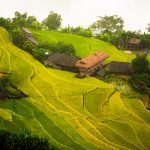
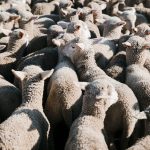
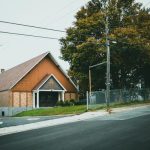



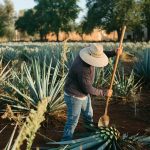
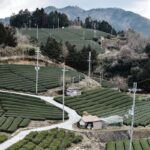
Leave a Reply